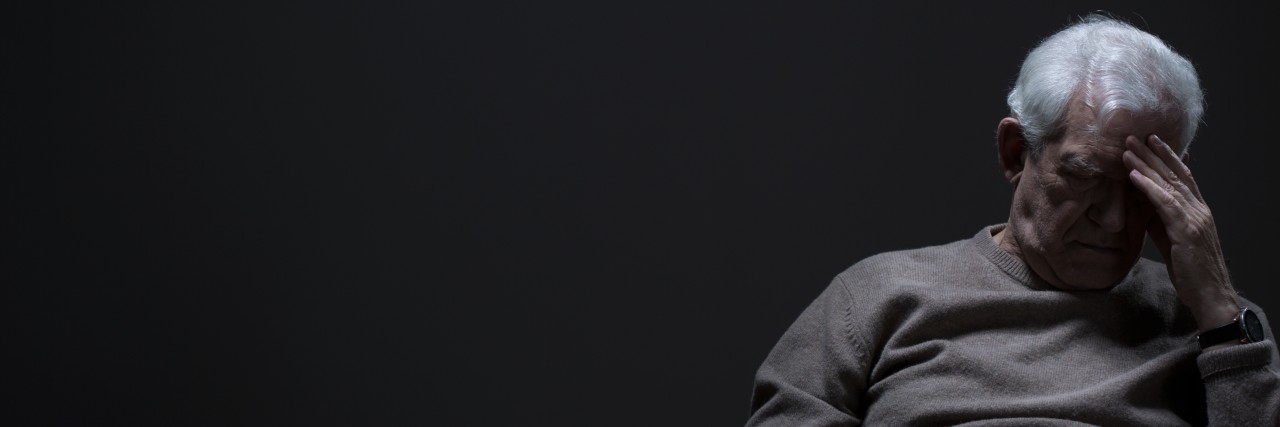I’ve been interviewing people who have identified with what I term “perfectly hidden depression. They’ve read one of my posts on perfectly hidden depression (PHD). Or they’ve taken my questionnaire on PHD (which you can take if interested, just head here.)
And they’ve reached out. First, we email. We talk about arranging a phone call for later to talk about their experience with hiding their depression. A few get cold feet and pull out. They’re not quite ready to be that vulnerable.
I get it.
Right before I make each call, I’m aware I want to make the person on the other end of the line as comfortable as I can as quickly as I can. Because I recognize how hard it is for them to share their story — to tell me, a stranger, things they may not have not told anyone. Ever.
Then we start talking. When asked, “Why did you reach out to me?” the answer has consistently been, “Because I’ve never seen this anywhere — and because I don’t want anyone else to have to live this way. It’s incredibly lonely.”
The 40 or so interviewees thus far have fallen into a spectrum. They’ve ranged from people who have never whispered a word to anyone, not even their spouse, that they have thoughts of wanting to die or secrets from their past and present that have remained shamefully untold, to people who hide mostly within their professional world but have a close friend or partner who know their struggles.
Most of the people I’ve interviewed belong to the first group. They’re in their car or out in the backyard where no one can hear them talking to me. A few have already sought therapy. But others have told me, “I am hoping that by talking to you, it will help me take the next step. I’m so tired of living this way.”
Everyone is describing themselves as people who take lots of responsibility, push themselves constantly, rarely feel they do enough, keep a thumb in their back — and yet never feel satisfied completely with what they’ve accomplished. All of that, of course, is what makes them not look depressed. They’re active, involved, engaged. But there is one question on the questionnaire that 39 out of 40 people have answered unequivocally “yes,” that keeps jumping out at me.
- Did you grow up in a family where feelings of sadness or pain were avoided, or where you were criticized or punished for expressing them? Yes______ No______
This is poignant to me. Because this is how I began wondering about PHD in the first place. I was trying to treat people who couldn’t express or connect strongly with feelings of sadness or pain. They could have other feelings but not much compassion for themselves.
Very little to none.
Here are quotes from some of the interviews:
“I was never told I was loved. I was raised by grandparents who gave me things to show their love.”
“I was adored. But I kept feelings secret if they didn’t please my mom. I was her best friend.”
“My mom died and all the pictures of her disappeared. We weren’t allowed to ask questions about her.”
“If I needed to cry, I hid. If you couldn’t be engaged appropriately with the family, you were punished.”
“If I was sad, I was told ‘those things happen.’ The only feeling that was allowed was anger. Not mine, my parent’s.”
“How can you be sad, and not know it? But that’s how it felt.”
“My mom had severe postpartum depression, like sometimes she thought about killing all of us, but dad wouldn’t do anything. All he did was criticize and be abusive.”
“I was the star of the family. They would drive hours to take me to athletic events. Everything was about practice and more practice. I was competitive. All we talked about was winning.”
These families were stunted. Parents or grandparents strictly or abusively controlled the emotional environment at home. There were huge gaps in the emotional experiences they were offering the children who were being raised within them.
If you imagine emotions as colors on a palette, only certain colors were allowed. There were no dark hues — no grays, mauves, or dark greens — nothing that would express fear, sadness, confusion or grief. Only yellows and oranges — “happy” colors. The only emotional world that could exist was one that suited those in charge.
If you don’t grow up knowing how to access and soothe more painful feelings — how to “paint” in those colors — it’s very difficult as an adult to learn how.
But it can be done.
Because they’re there. You feel them in the pit of your stomach. You can catch them when someone is unexpectedly kind to you. Maybe you feel them when you’re taking a shower and you notice how exhausted you are. Or when you get quiet at night. You can reengage with practice as you divorce yourself from the irrational rules you learned as a child.
So… no, there’s not one factor that determines the presence of perfectly hidden depression. But if you struggle to feel sad… if you cringe at thinking about being a bit vulnerable… if you don’t even know how… you might think about it.
You can break free. You can be vulnerable.
You don’t have to be lonely.
If you or someone you know needs help, visit our suicide prevention resources page.
If you need support right now, call the Suicide Prevention Lifeline at 1-800-273-8255.
We want to hear your story. Become a Mighty contributor here.
Thinkstock photo by Katarzyna Bialasiewicz

